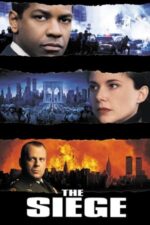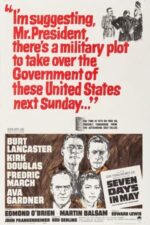The Tightrope Walk: Exploring the Political Thriller Genre
Isn’t there something inherently captivating about a story where you know things aren't quite right? Where power is wielded subtly, secrets simmer beneath the surface, and every handshake feels like a potential betrayal? That’s the heart of the political thriller, a genre that’s always been with us, evolving alongside our anxieties about authority and control. It's more than just explosions and car chases (though those can be fun!); it's about the slow burn of manipulation, the erosion of trust, and the terrifying realization that the system itself might be rigged.
Think back to classic examples – All About Eve’s masterful dissection of ambition in the theatre world is essentially a political thriller played out amongst actors! But the genre really solidified its place with films like The Parallax View, where paranoia hangs thick in the air as a man investigates his wife's assassination and uncovers a shadowy conspiracy. It’s that feeling of being adrift, unsure who to trust, that defines it.
What I love about the political thriller is how it reflects our current societal anxieties. Right now, with so much distrust surrounding institutions and information, these films feel incredibly relevant. Take Kuberaa, for instance. The sheer audacity of laundering money through beggars – it’s a darkly satirical commentary on corruption and inequality that feels ripped from today's headlines. It’s not just about the heist; it’s about the system that allows such exploitation to flourish, and the desperate attempts to right those wrongs.
Then you have films like Hemet, or the Landlady Don’t Drink Tea, which take a more psychological approach. The manipulation isn't necessarily tied to grand political schemes but operates on a deeply personal level, highlighting how power dynamics can corrupt even seemingly ordinary relationships. It reminds us that control and dominance aren’t always about governments; they can exist in our neighborhoods, our workplaces, even within our own homes.
District C-11, with its martial law setting, taps into the anxieties surrounding order versus freedom – a recurring theme throughout political thrillers. And Shadow Land? That's a brilliant example of how the genre can be internalized, exploring the psychological toll that power and secrets take on individuals, blurring the lines between reality and delusion. It’s almost like Hitchcock meets… well, a former president wrestling with his demons!
Even something seemingly straightforward like The Siege at Thorn High, while ostensibly about family and survival, carries political undertones – the simmering unrest of youth, the breakdown of social order, and the potential for violence when marginalized communities feel unheard.
Ultimately, the political thriller isn't just entertainment; it’s a mirror reflecting our fears and anxieties back at us. It challenges us to question authority, examine power structures, and consider what we would do if we found ourselves caught in the crosshairs of something bigger than ourselves. And that, my friends, is why I keep coming back for more.







































